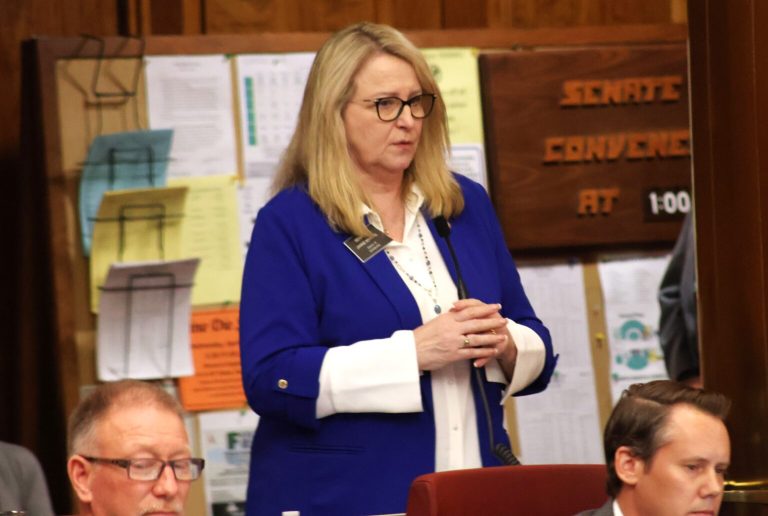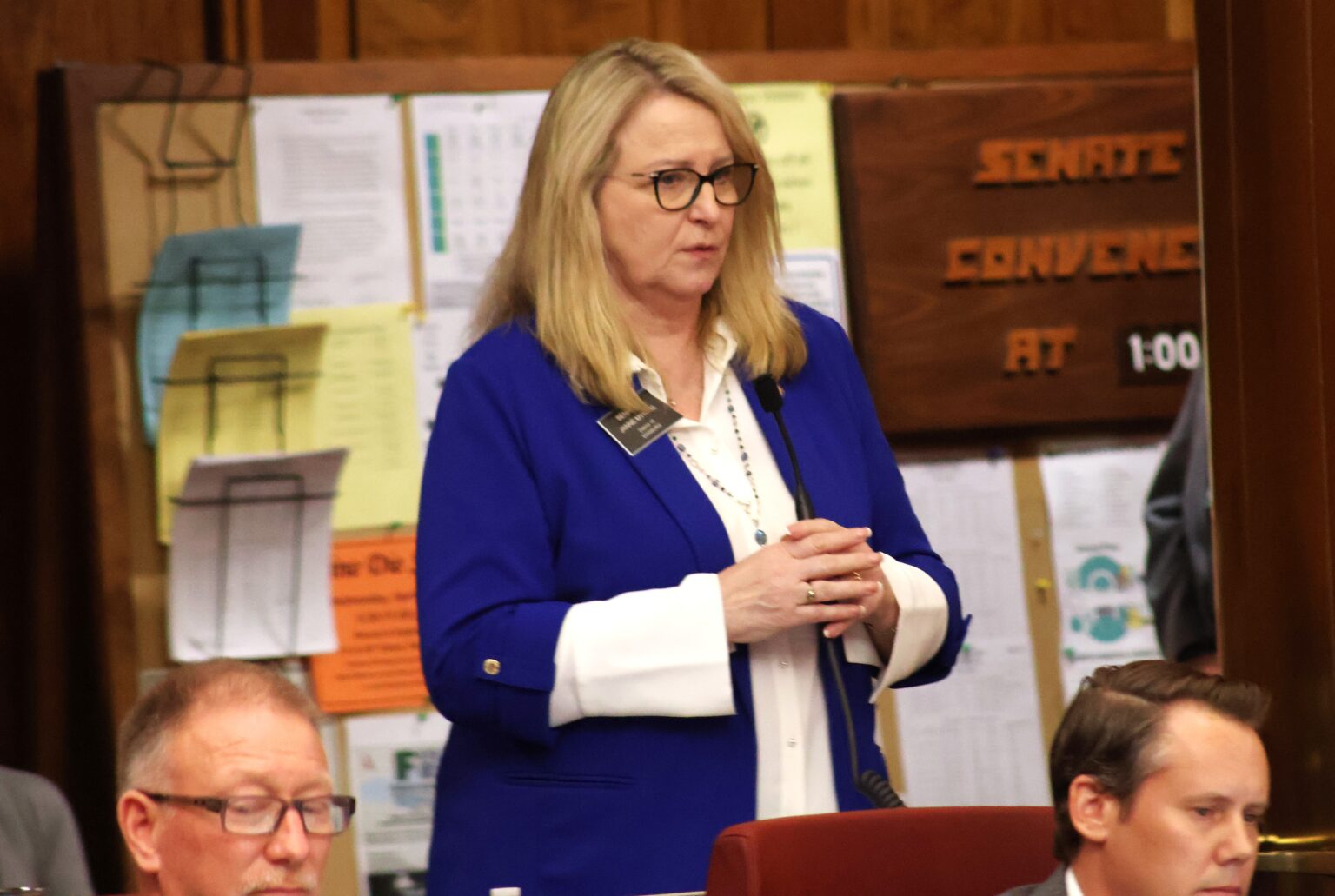
BISMARCK, N.D. (North Dakota Monitor) — The North Dakota Senate unanimously passed a property tax bill Thursday, but adopted major amendments that could set up a conference committee showdown between the House and Senate.
Amendments to House Bill 1176 reduce the maximum primary residence credit from the $1,450 approved by the House to $1,250. Gov. Kelly Armstrong, who backs the original bill, had proposed a credit of up to $1,550 for homeowners.
The Senate also adopted what Senate Majority Leader David Hogue called a “skin-in-the-game” amendment that would limit the credit to 75% of the property owner’s total tax liability. Homeowners would get a minimum tax credit of $500, the same level approved by lawmakers in 2023.
Another amendment includes language urging lawmakers in the 2027 session to consider reducing property taxes for other property types, such as agricultural and commercial.
Sen. Janne Myrdal, R-Edinburg, said she worries about excluding agricultural property from the tax credit when about 40% of the Legislature represents rural areas. She added rural areas depend more on property taxes than urban areas and excluding agricultural land from the bill puts a greater burden on those taxpayers.
The Senate version of the bill would provide an estimated $478 million in tax relief for citizens for 2025-27, Tax Commissioner Brian Kroshus said.
Gov. Kelly Armstrong said he is still advocating for the House version of the bill, but he’s shifting his focus to the conference committee.
“I think if the original version was on the floor of the Senate it would pass,” Armstrong said. “I think there is plenty of room to get it back to where it was.”
The bill will now be sent back to the House for approval of the amendments. If the House does not concur with the Senate’s changes, a conference committee made up of three members from each chamber will be appointed to iron out the differences.
Hogue, R-Minot, who advocated for the amendments, said it’s possible the conference committee won’t be able to agree on how to reconcile the bill.
He added the Senate Finance and Taxation Committee still has two property tax bills, House Bill 1575 and House Bill 1168, under consideration. Both of those bills would reduce taxes for other property types, while House Bill 1176 only affects primary residences.
“There may be no compromise and so we’ll go onto some other form of tax relief for North Dakotans,” Hogue said. “The Senate consensus is that what we passed today reflects the will of the Senate.”
Armstrong said the Senate may have property tax measures in reserve, but they still need to clear both chambers.
Rep. Mike Nathe, R-Bismarck, primary sponsor of the bill, said the House supports the version of the bill with a $1,450 primary residence credit.
“This is the No. 1 issue coming into this session and people have spoken loud and clear, and that’s what’s so disappointing about these amendments being kept on and reducing the benefits,” Nathe said. “I don’t understand why they did what they did.”
Sen. Mark Weber, R-Casselton, chair of the Senate Finance and Taxation Committee, said if the bill gets to a conference committee, there will be some haggling over the primary residence credit that could go on for multiple days.
He added the two property tax bills in his committee could be used to provide technical corrections for House Bill 1176 depending on what happens during the conference committee.
“We’ve come a long ways and now we’ll begin the third period,” Weber said. “I think the governor obviously wanted the bill to come out as is so he could quickly sign it and get it out there, which is a noble thing. But there was a little difference in thinking on some of this and that’s why we have the Senate and the House.”
(Story written by Michael Achterling – North Dakota Monitor)







